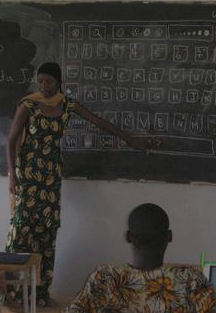More Tech Salons About Digital Divide
-
On May 27, 2021 more than 50 people gathered virtually for a San Francisco Bay Area Technology Salon that investigated different forms of storytelling technology being used effectively in diverse international development environments. Which Storytelling Media are Most Effective for High Impact Campaigns? featured discussion leads based in the US, Israel, and Afghanistan, with…
-
The coronavirus pandemic is creating unprecedented food insecurity around the world. The World Food Programme estimates that the number of people facing acute hunger will double to 265 million in 2020. This global challenge comes on top of existing vulnerabilities including conflict, climate change and economic crises compounded by long-standing social and structural discrimination based…
-
Recently, the Technology Salon in Washington DC asked if Digital Economies Will Empower or Enslave the Next 4 Billion Mobile Users? While there was a general recognition of the lack of digital literacy, and the disadvantages people face when trying to understand the costs and benefits of having an online presence, opinions were split on…
-
At the December Technology Salon, the word “Local Content” emerged as multifaceted term that has different definitions across development organizations and sectors. Priya Jaisinghani and Jonathan Dolan of USAID, and John Garrity of Cisco, led the discussion about what orgs are doing in regards to Local Content. Participants’ definitions of Local Content ranged from news,…
-
At the Technology Salon on “How Can We Create Digital Jobs for African Youth?” our discussion was led by Lauren Dawes, who leads the GSMA’s Mobiles for Employment team, and Lillian Chege from the Rockefeller Foundation’s Digital Jobs Africa program. The GSMA will release a study on Mobiles for Youth Employment in July, and Rockefeller…
-
At the first Technology Salon in London, we had a very thoughtful discussion on the implications of gender in using mobile technologies to stimulate social and economic development.
-
The very first Tech Salon to take place in London on Wednesday 20 March occurred just three days after the International Telecommunications Union (ITU) announced that connecting women to ICTs would become a focal point of the post-2015 development agenda.
-
Today’s youth population is the largest in the history of the world, and 90% of these young people live in developing countries. The global youth unemployment rate is the highest on record, and we’re seeing discontent and disenfranchisement play out on the news each day. In fact, the revolution in Tunisia started with an under-employed…
-
While everyone is amazed at the quick proliferation of mobile phones in the developing world, here’s a startling statistic which should check our unbridled enthusiasm for m-everything: 73% of women in Sub-Saharan Africa and South Asia do not have a mobile phone. Across all developing countries, adult women are 21% less likely to have a…
-
Over 300 million women are being left out of the benefits of mobile phone ownership as it becomes the most ubiquitous technology in the developing world, which has major implications given women’s role in social and economic development. Furthermore, the potential value of cell phone ownership increases as mobile services (mServices) including health, finance, and…
-
The Girls and ICT Technology Salon was a great opportunity to get an amazing group of thinkers and do-ers in the same room to debate around a particular topic. I’m Linda Raftree, Plan International West Africa Regional Office, Advisor for New Technology and Social Media. I was honored to lead 20+ people in a conversation…
-
In the developing world, girls need new skills and capacities for the 21st Century. They need to have the ability to be flexible, adaptive, and innovative to grow into positions of influence in their communities and countries.
Yet – as we learned in the Gender Equality in ICT Education discussion – just getting girls to secondary school is a challenge, and once there, girls often shun ICT’s unless they have strong mentors and female role models.
Please join us Thursday, January 28th, as Linda Raftree, Social Media and New Technology Advisor for Plan International‘s West Africa Regional Office, leads us in a discussion of three pertinent questions:
- How can the technology and international development communities support the development of girls?
- What role does ICT play in facilitating girls’ growth?
- And where are the concrete examples that prove ICT is a net positive for female progress?
We’ll also try to identify case studies, partners, and further research around girls development and ICT for inclusion in Plan’s 2010 Girls and ICT Report, now underway.









